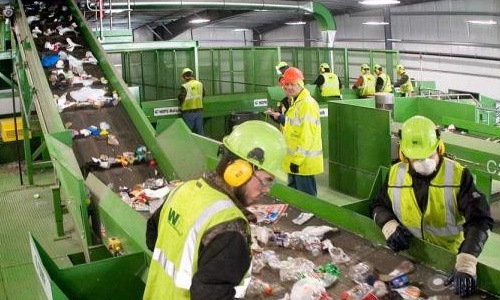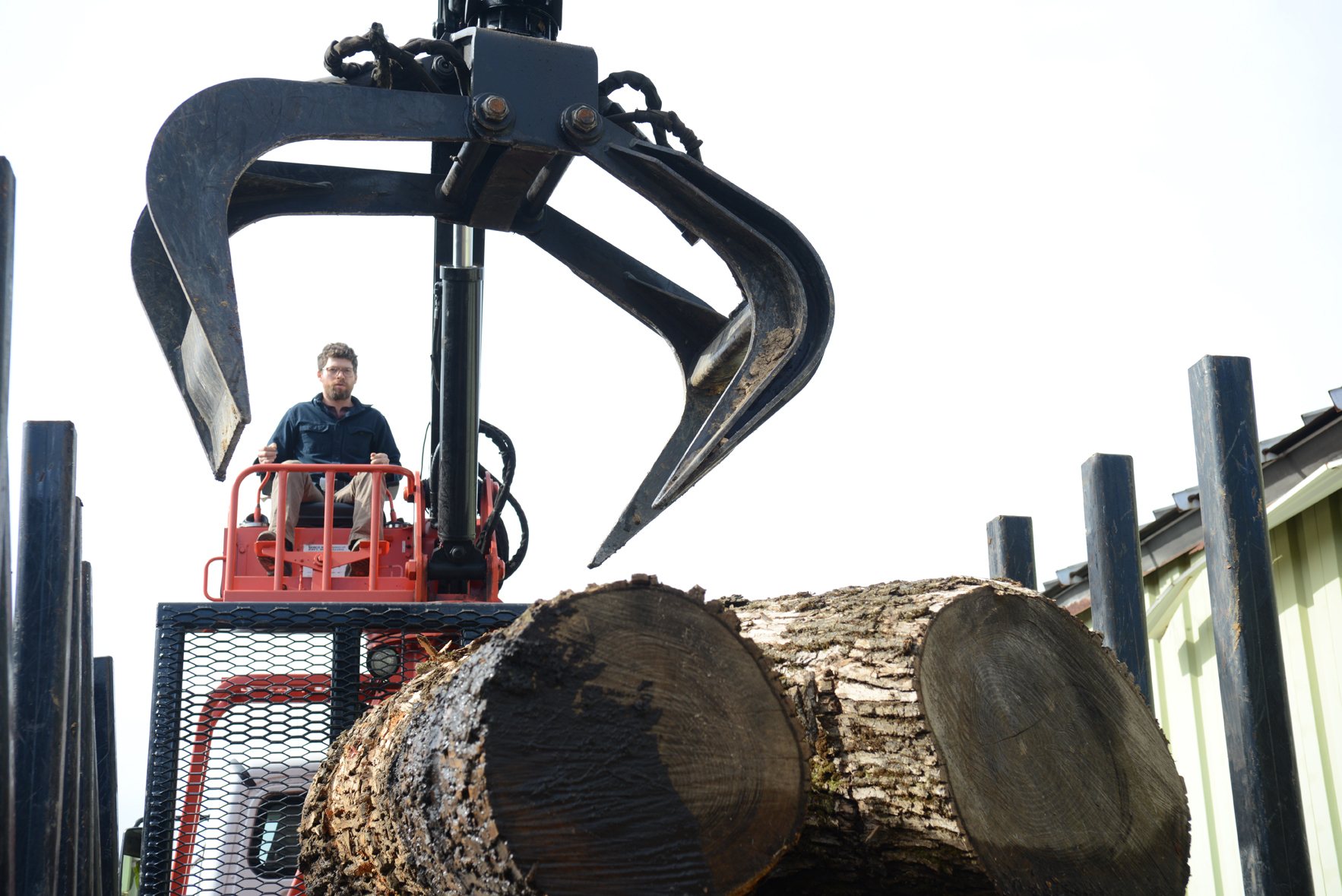There is not much information about private sector recycling in US cities. Recycling studies and statistics typically focus on household recycling while the commercial recycling levels are mostly educated guesses. The US EPA estimates that 35% of commercial and household municipal waste is recycled. Cities in the last decade have adopted single stream recycling at the insistence of the large waste hauling companies, which have built mega MRFs of 20,000 ton per month capacity and more. The results have not been particularly impressive. Companies such as WMI are claiming that the system does not work. High levels of residues plague these systems that recover glass and plastic materials that are only good for daily landfill cover. These companies are petitioning for higher fees to make their facilities economically sound. Los Angeles has decided to boost commercial recycling by developing a franchise system that will give 11 companies the exclusive right to collect waste, recyclables and compatible material in their respective districts. NYC is considering a similar franchising approach. Washington, DC’s new solid waste management law requires that haulers provide detailed information on recycling in order for the city to plan appropriately.
RoadRunner, a company formed in 2014 by observant and motivated entrepreneurs, is offering an alternative: specialized attention to the needs of commercial customers and the use of existing infrastructure, including local trucking companies, local MRFs and regional end user mills.
 The company moved from observation to analysis to implementation and is now serving commercial businesses in Pittsburgh, Philadelphia, and Washington DC. They are expanding into five more cities in the next year, with Baltimore being first on that list; operations commence there in early June 2017.
The company moved from observation to analysis to implementation and is now serving commercial businesses in Pittsburgh, Philadelphia, and Washington DC. They are expanding into five more cities in the next year, with Baltimore being first on that list; operations commence there in early June 2017.
The first key insight for the company was the obvious: small businesses are not getting the economic boost that recycling materials makes possible. Even when businesses recycle, they rarely get a discount from their waste haulers even as they reduce the amount of materials they place in their waste dumpsters. It is tough for a small business to negotiate with the national waste companies that have a virtual monopoly on private landfills and transfer stations, and dominate collection routes.
The second key insight is that efficiency requires good source separation – not single stream separation. RoadRunner provides technical assistance to its customers in planning, selection and configuration of bins and carts as well as convenient collection schedules. “Single stream recycling is too capital intensive, requiring dumpsters, trucks and processing,” states company President Graham Rihn “These are not necessary for efficient and low-cost recycling.”
What is necessary is reliable software to understand generation rates of materials, the use of appropriate storage containers and the harnessed capacity of ‘built in logistics”, such as the existing non-garbage trucks that serve the businesses with traditional deliveries of inventory. Based on “clean stream” recycling, RoadRunner Launch Director Dean Liappas points out, “We can use our database to direct materials to the existing infrastructure for recycling materials in any city.” This means hiring trucks for dead head loads to processing plants and/or direct shipment to mills through our mobile application. Clean, segregated materials allow us to get the best price for the materials, use optimal routing and, hence, the best value for commercial clients.” Processors and end users bid for the clean materials that RoadRunner has under its control.
RoadRunner reduces capital costs of the recycling process and is able to send high value materials to markets. Overwhelmingly, buyers prefer clean source materials to materials from single stream collection and processing systems.
By reinventing how recycled materials flow throughout a city, “We present our customers with a different cost curve, often reducing the costs of overall waste management by 25% and increasing recycling rates threefold,” concludes Rihn.
The overall result is that businesses recycle more and pay less by participating in the favorable dynamics that RoadRunner has created in cities. Just as organized citizens have moved their cities to increasingly higher levels of household recycling above the national average, RoadRunner is making a similar breakthrough in commercial sector recycling in each city it sets up operations.
Info on RoadRunner:
RoadRunner builds on the fact that the most value for recyclable material generated by commercial enterprise is extracted through sale to a direct buyer. The company addresses the traditionally inefficient collection process. Unlike the incumbent waste and recycling haulers, they use the existing transportation infrastructure within a city – box trucks, stake trucks, trailers already on the road conducting other business – and using an on-demand logistics model, exploit the deadhead and/or excess bed capacity in those vehicles to move recyclables from business to buyer.
In removing the burdensome capital requirements of a traditional collections company, RoadRunner can present small and medium sized businesses an entirely different and lower cost curve for recycling, and promote effective source separation for several streams.
Data from thousands of businesses and the use of algorithms allow the company to accurately predict the types and amounts of materials to be handled at any particular generator. They can determine the kind of equipment needed, the education and training needed, monthly costs and potential savings to their existing and potential commercial clients. Thus it can get the right material stream to the right buyer.
“RoadRunner’s ‘super data’ dictates the model and scale of operations needed for each site,” says Launch Director Dean Liappas.
City planners can greatly benefit from this data as they consider policy changes for commercial recycling. For example, Liappas points out that “before a city mandates commercial recycling to boost commercial recycling rates, or establishes any new waste and/or recycling ordinance for that matter, our data would be particularly useful in the crafting of specific policy specifications and targets.”
RoadRunner’s approach could help a city to determine if franchising, as is being introduced in Los Angeles, is the most expeditious way to increase commercial recycling to meet the state’s 75% recycling goal. Given the basic change that franchising in large markets can cause, RoadRunner’s strategy can be a viable alternative. At the same time, franchised haulers too can benefit from ‘super data” on the businesses in their franchise district.
Follow the Institute for Local Self-Reliance on Twitter and Facebook and, for monthly updates on our work, sign-up for our ILSR general newsletter.





